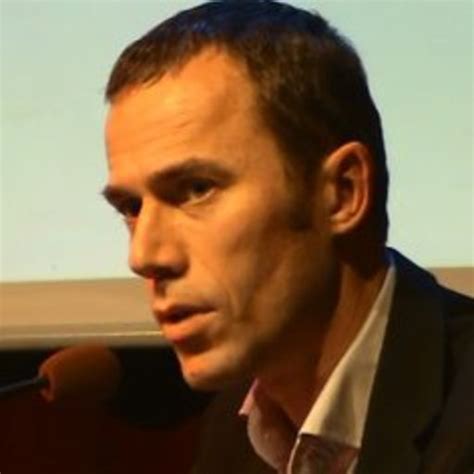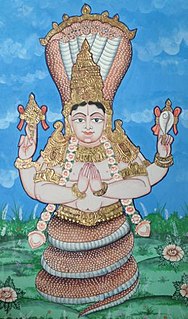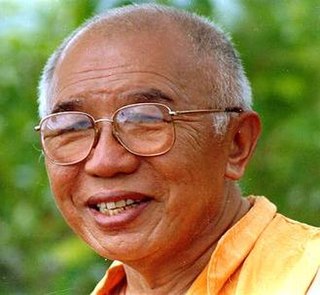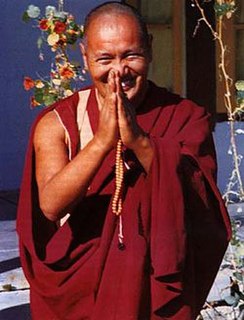A Quote by Yamada Koun
The entrance into Zen is the grasping of one's essential nature. It is absolutely impossible, however, to come to a clear understanding of our essential nature by any intellectual or philosophical method. It is accomplished only by the experience of self-realization through zazen.
Related Quotes
Mystical experience of nature can be of particular relevance to our troubled age, bringing deeper into our consciousness and emotions the logic that nature sustains humanity as humanity must, in turn, sustain nature. Rationality alone, however, cannot be our guide in the task of restoring our environment. A spiritual connection to nature must inspire the emotional commitment that is the yin, complementing the yang of intellectual understanding.
Experience shows that Being is the essential, basic nature of the mind; but, since It commonly remains in tune with the senses projecting outwards toward the manifested realms of creation, the mind misses or fails to appreciate its own essential nature, just as the eyes are unable to see themselves.
Nothing comes to pass in nature, which can be set down to a flaw therein; for nature is always the same, and everywhere one and the same in her efficacy and power of action: that is, nature's laws and ordinances, whereby all things come to pass and change from one form to another, are everywhere and always the same; so that there should be one and the same method of understanding the nature of all things whatsoever, namely, through nature's universal laws and rules.
Secular humanism does not have the essential attributes of a religion: belief in a deity, the wish for some sort of afterlife, sacred dogma or texts, or an absolutist moral creed. Instead, it expresses a philosophical and ethical point of view, and it draws upon the scientific method in formulationg its naturalistic view of the nature.
The first spiritual law of success is the Law of Pure Potentiality. This law is based on the fact that we are, in our essential state, pure consciousness. Pure consciousness is pure potentiality; it is the field of all possibilities and infinite creativity. Pure consciousness is our spiritual essence. Being infinite and unbounded, it is also pure joy. Other attributes of consciousness are pure knowledge, infinite silence, perfect balance, invincibility, simplicity, and bliss. This is our essential nature. Our essential nature is one of pure potentiality.
Idealists are people who believe in the potential of human nature for transformation. . . . The most essential attribute of human nature is its mutability and freedom from instinct . . . it is always within our power to change our nature. So it is actually the idealists who are on the mark and the realists who are off base.
Man cannot be enlightened through any organization, creed, dogma, priest or ritual, nor through any philosophical knowledge or psychological technique. He has to find it through understanding the contents of his own mind, through observation, not through intellectual analysis or introspective dissection.
Zen purposes to discipline the mind itself, to make it its own master, through an insight into its proper nature. This getting into the real nature of one's own mind or soul is the fundamental object of Zen Buddhism. Zen, therefore, is more than meditation and Dhyana in its ordinary sense. The discipline of Zen consists in opening the mental eye in order to look into the very reason of existence.

































